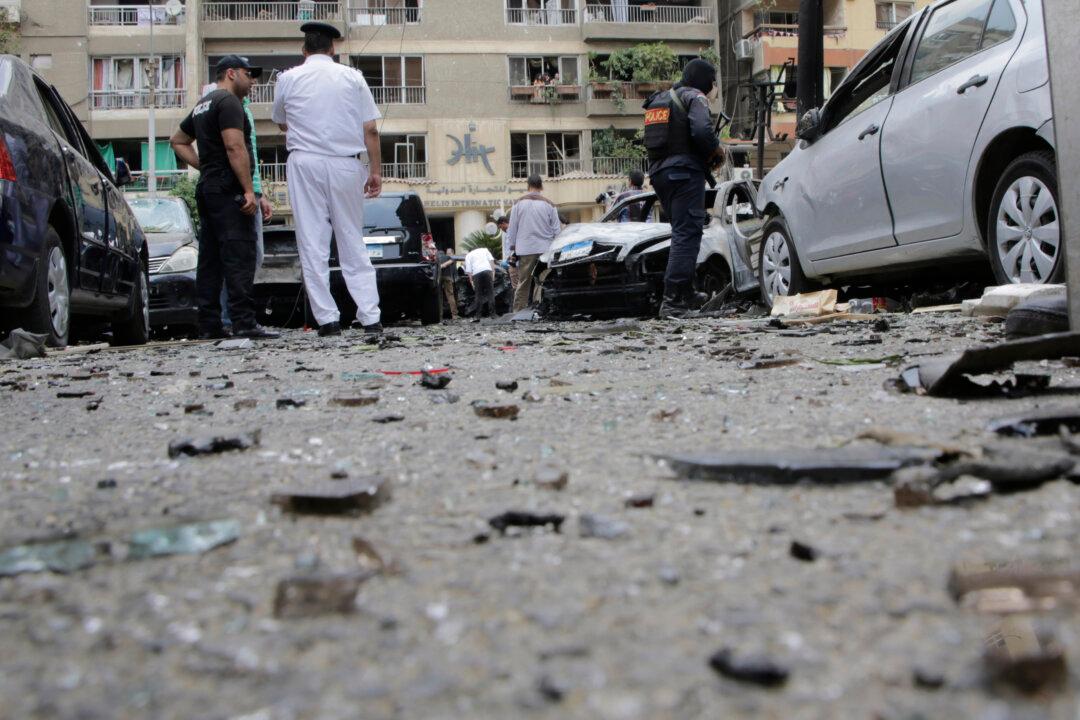CAIRO—A strong explosion ripped through the convoy of Egypt’s prosecutor general on Monday morning in a busy upscale Cairo suburb, seriously wounding him and seven other people in the first assassination attempt on a top official in two years.
The attack came as Egyptian security forces were already on high alert on the eve of the second anniversary of massive anti-Islamist demonstrations that paved the way, days later, for the military’s ouster of President Mohammed Morsi, an Islamist.
The explosion ripped through several cars as State Prosecutor Hisham Barakat and his entourage were driving from his home in the eastern suburb of Heliopolis to his office in downtown Cairo, a security official said.





